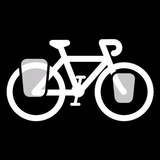It's not real. Who dreamed this up? It is a crazy picture, artificially created, and I tend to think the dude with the hat created it as a self-portrait. The face of the boy is from a classic stock photo.
The geo-political scene is much more important than the national scene, and within the national scene, local school board politics is probably the most important of them all. We teach our children as we do and these are the results we get. Let's blame it all on the media and the politicians.
All the key players are yelling and screaming about something while others are asleep.
The geo-political scene is much more important than the national scene, and within the national scene, local school board politics is probably the most important of them all. We teach our children as we do and these are the results we get. Let's blame it all on the media and the politicians.
All the key players are yelling and screaming about something while others are asleep.
One man's home, long gone from this world, but not forgotten.
https://en.wikipedia.org/wiki/Friedrich_Wilhelm_von_Steuben
Instruction Manual - How to Win a Revolutionary War:
https://en.wikisource.org/wiki/Revolutionary_War_Drill_Manual
https://en.wikipedia.org/wiki/Friedrich_Wilhelm_von_Steuben
Instruction Manual - How to Win a Revolutionary War:
https://en.wikisource.org/wiki/Revolutionary_War_Drill_Manual
